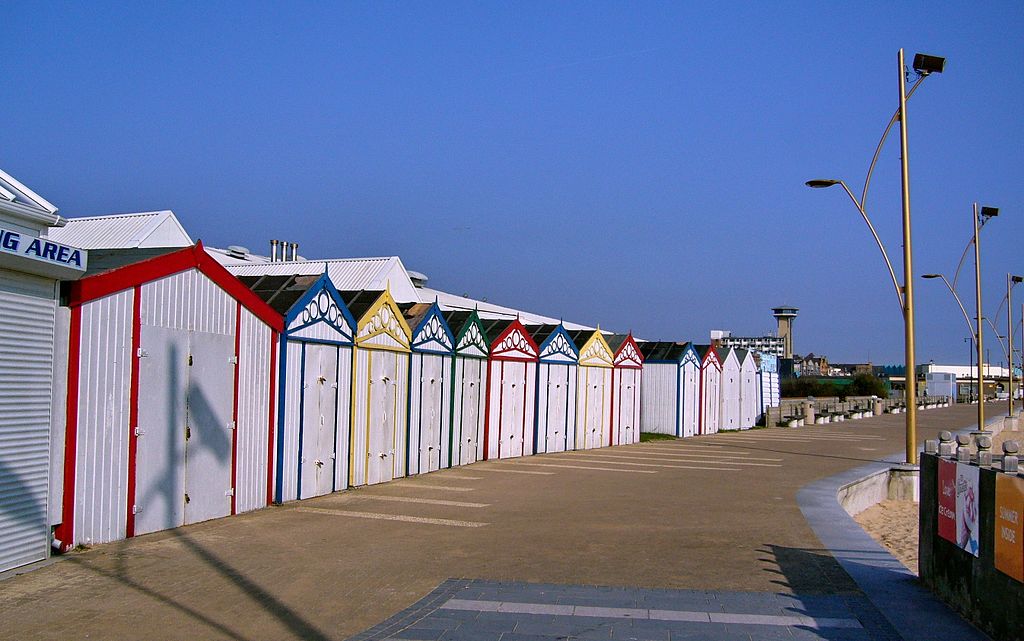
The eponymous Yare divides Yarmouth from Gorleston. But that is not the only schism we found on this, our latest visit to see first-hand how the National Minimum Wage and the National Living Wage impact on employers, workers, unions, local authorities and communities. As I arrived on the last rain from Norwich, there was just a stab of light left in the sky, and the lights of the town rose out of the deeply gloaming, flat land.
As a borough, Great Yarmouth has some worrying indicators – economically inactive households account for around 30% of the population. People with self-declared health and social care issues account for a third of that, but that number in no way matches those in receipt of a carer’s allowance (a crude measure, I accept), and on the remaining two-thirds, there is simply no published data. Employment in the area is skewed towards lower paid occupations, just as the qualifications of townsfolk are inversely related to those most lauded. The local authority accepts the presence of a correlation between low skills, low-paying employment, poor health outcomes (and the borough’s statistics paint a truly dire picture on this), high numbers employed in social care and high levels of economic inactivity. Research is to be commissioned on whether there is any causation to be found.
As usual, people gave their time, experiences and opinions freely, with candour and consideration. Unite representatives from catering, hospitality and social care sectors painted a bleak picture of continuing insecurity in employment, and an absence of meaningful solution-orientated dialogue at workplace level, characterised by lack of employee voice and largely uncaring management. The council’s inward investment team presented a lucid and honest appraisal of the challenges and opportunities facing the borough. I felt almost a sense of resignation at the juxtaposition of those health statistics and wards with multiple indicators of deprivation alongside a booming marine/energy technology sector. Rueful descriptions of how Dutch and Scandinavian workers were flown and bussed in, transferred to residential vessels and shipped out to the surrounding wind farms, barely setting foot (let alone spending cash) in the town sat alongside many thoughtful and determined illustrations of plans to incrementally mitigate the bad, consolidate the good, including a “Town Centre Masterplan”.

We met employers who represented many different sectors, sizes of enterprise, models of operation – a convenience store, holiday park, hair dressing salon and a long-established 200-seat beachfront café. All spoke with passion about their businesses and were supportive of the principle of wage floors in the labour market. But the familiar concerns of, among others, squeezed differentials, price-sensitive demand, perceived unfairness in the tax system (especially, for the hair salon, around the threshold for VAT payments and self-employed NI contribution caps) and unsurprisingly the weather itself, made the people we met somewhat cautious about the future. While they may have been resigned to the pay floor inexorably moving ever closer to £10 or two-thirds of median earnings, they all also had plans for how to navigate that terrain.

I am left struggling a little to get a clear view of the borough. There is clearly a balance between the elements of growth and investment (and the fact that the council even has an “inward investment unit” speaks volumes) and relatively low levels of both qualifications and high-income employment. The balance is not seen as comfortable or desirable but there seems no grand Marshall Plan, from whatever source, that would be necessary to achieve transformative, as opposed to incremental, change. Whether or not that is a problem is, I think, outside of the Commission’s remit. I do think that coastal, seasonal towns (and GY sees Hastings, Margate, Dover, Allerdale and Scarborough as comparators) have particular traits to their economies. How can it not be when the promenade is such a significant part of the town? But that seasonality can serve to disguise and distort. It is both fitting and positive that in Great Yarmouth, tourism receives special attention – both in developing the trade it brings and lengthening the season beyond spring and summer.

On our visits we also seek to make the most of the opportunities presented by the local economy, so were grateful to Tim Place and his colleagues for hosting our visit to his family-owned and extensive soft fruit farm not far from Norwich. This was a chance to see a leading supplier’s operations close up, and especially the sometimes sensitive area of migrant, seasonal labour – in this case over 300 mostly Bulgarian fruit pickers. The soft fruit sector, in keeping with agriculture more generally, faces particularly significant challenges but like all the employers we met, there is a plan for most eventualities. A key area for us in this scenario is the use of the often-overlooked Accommodation Offset that comes into play when employers provide lodgings as part of the overall package. The LPC recommends rates for the offset, which can be deducted from workers' pay if accommodation is provided - the current rate is £7.55 per day. There is a small sheaf of research papers on this subject, so I will confine my observation to the commonality between the Bulgarians picking fruit and employees across all the sectors we visited in Great Yarmouth – when the labour market is tight, employers need to make their offer more attractive in order gain and keep staff. That can be accommodation, career development, flexible working, or your working environment. But it has to be something.
Thanks, as always, to all those who gave up their time to meet with us, and to the secretariat for organising everything.
